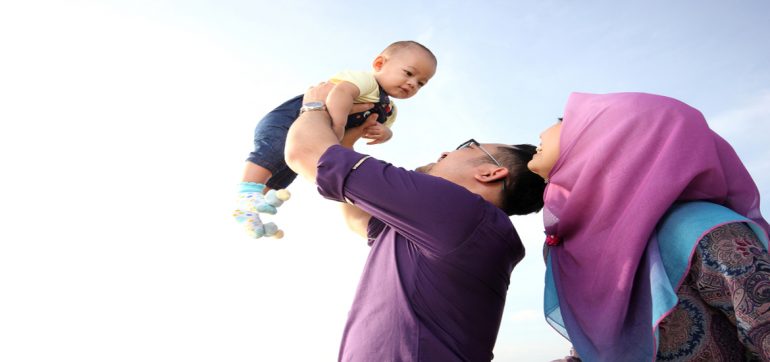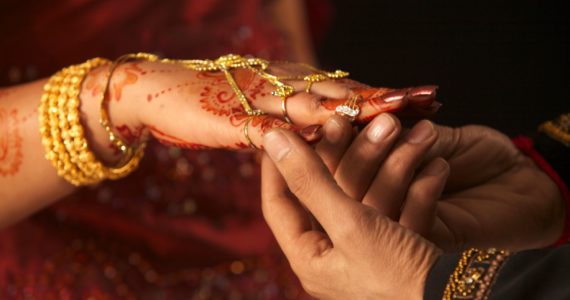Source: http://muslimmatters.org/2015/11/11/why-women-really-compete-with-each-other/
The New York Times article “Why Women Compete With Each Other” attempts to delve into the psychological reasons as to why women are infamously noted for rivaling and undercutting each other. The article discusses potential biological and social factors that make it seemingly imperative for women to compete with each other. The evolutionary psychological perspective here is that women compete in order to win the best mate, and therefore the best overall life.
The idea is that if you have the best mate, you’ll have happy healthy children, a nice home, enough money to keep you secure etc. – it’s touted to be natural or even expected for women to compete with each other in order to reach those achievements.
A part of the “competition” between women is due to the fact that we’ve bought into the idea that there is some sort of “limited commodity” that we’re all trying to attain. Whether that’s the ideal father for our children, some perfect beauty standard, the perfect mother award, or a checklist of accomplishments, we’ve been convinced that for one of us to have it, someone else needs to not have it. It ends up making women a threat to other women, and society continually perpetuates that idea by pitting us against each other. We see it on a larger scale in celebrity culture all the time – “Who wore it best?”, “Who got the man?” “Who is the more organic mom?” etc.
On a smaller scale, we see it every day on our social media newsfeeds. We try to one up each other with the most Pintresty parties we can throw, the number of friends we have, how picture perfect our families are, or how skinny and beautiful we look in an outfit. While putting these perfect moments out for the world to see may not be an overt attempt at shaming other women, many women walk away feeling disempowered when outdone. What we as women need to realize and be empowered to believe is that we don’t actually have to buy into the ideal. We can stand up against the world of consumerism and societal expectations, and we can fight against its constant hunt to swallow us up.
This is where our spirituality and deen comes in. This dunya may have a limited quantity of good, but the treasures of Allah doesn’t. This dunya may be a rat race, but Jannah is not.
Misplaced Self Worth
The truth is, that this idea that women compete with and undermine one another, whether in order to either consciously or subconsciously, make themselves more desirable to men is an issue of misplaced self worth. Our society and our communities judge and define the worthiness of women from a multitude of external factors – many of which are not within our control. Once this criteria of external forms of worthiness is internalized, the struggle to attain it begins. One of the greatest forms of this misplaced self worth is when it is measured by the level of one’s desirability to men. More specifically in the Muslim community, this is often measured by whether or not a woman is married, and by what age. Men wouldn’t be a source of “competition” if women weren’t defined by their relationships (most Islamic talks given in our masjid on women are on their roles in relation to men) or the presence of a ring.
It’s unfortunately common to see women measure themselves, their worth as women, and their contribution to society as a whole through their desirability to men. We may often find ourselves thinking, “Does he like me?”, “Will I ever get married?”, “Am I pretty?”. Perhaps at surface level these questions are harmless, but in reality they tend to reflect a deeper picture of how we truly measure our self worth. As Muslims, Allah tells us that there is no other measure of our worth other than righteousness.
“O Mankind, We created you from a single (pair) of a male and a female and made you into nations and tribes, that you may know each other. Verily the most honored of you in the sight of God is he who is the most righteous of you” (Qur’an 49:13).
Allah subḥānahu wa ta’āla (glorified and exalted be He) tells us that our honor, our worth, comes from our righteousness, and what’s great about that is that righteousness is something everyone has the ability to acquire. When we shift our concept of self worth to one that values righteousness, we stop clamoring for the attention of men and begin to clamor for the attention of Allah. Instead of being desperate for desirability to men, we become desperate for the pleasure of Allah. We think, speak, act, and conduct our lives in a way that will earn the pleasure of Allah. And unlike the “limited commodity” mindset of the dunya, Allah has more than enough mercy to go around. Instead of undermining other women to earn the attention of men, we help our fellow sisters for the sake of Allah. Our deen liberates us from the social confines of worthiness; it strips this dunya of its power over us and frees us from its shackles.
Loves For Her Sister What She Loves For Herself [1]
This isn’t to say that shifting our concept of self worth is easy, it can be difficult! We live in a society that constantly pitts women against each other and makes an effort to normalize the notion that women should clamor for the attention of men. The key here is to desire for your sister what you desire for yourself, and when you reflect and notice that this isn’t the case, renew your intentions, make du’a for your sister, and seek guidance from Allah. When we sincerely turn to Allah and ask Him to help us make that change, He subḥānahu wa ta’āla (glorified and exalted be He) makes it easy.
Shani Banks is a passionate Muslim community organizer in the D.C./Maryland/Virginia area, and a recent recipient of a B.A. in Psychology from the University of Maryland. She is the creative founder of the Islamic mobile app, My iman Plan, set to release in late 2015 and an advocate for thoughtful and innovative social entrepreneurship start-ups. Shani currently works for an international non-profit organization under Johns Hopkins and is pursuing a career in clinical mental health counseling.
Sumayyah is currently pursuing her graduate degree in clinical social work at University of Maryland at Baltimore, graduating in Spring 2016 insha’Allah. As a former Islamic school teacher, she is passionate about bringing mental health awareness and resources to the Muslim community, specifically to the Muslim youth. She currently interns at an all girls public high school in Baltimore City providing counseling services and support to students.
[1] Anas relates that the Prophet ṣallallāhu ‘alayhi wa sallam (peace and blessings of Allāh be upon him) said: “None of you truly believes until he loves for his brother what he loves for himself.” [Sahîh al-Bukhârî and Sahîh Muslim]








